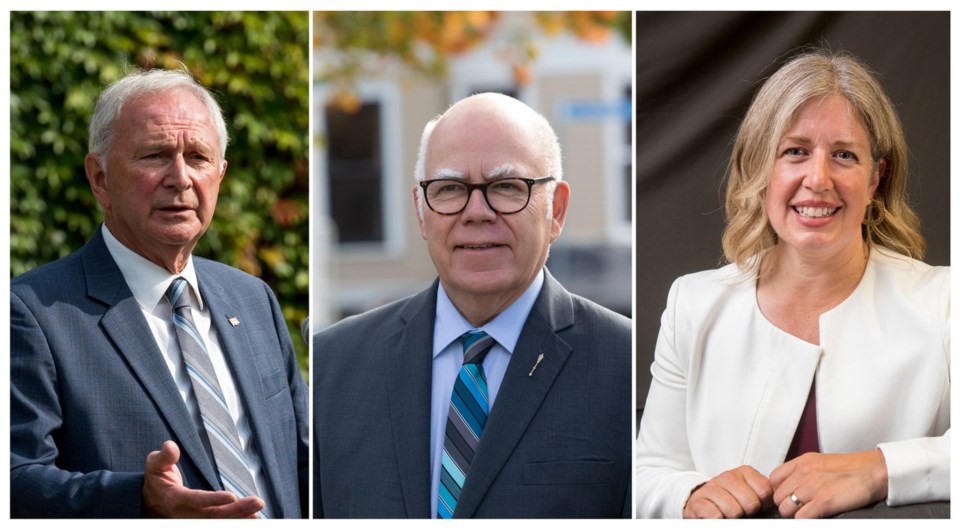FREDERICTON — The October New Brunswick election loomed over events on Monday marking the National Day for Truth and Reconciliation, a public commemoration of the painful legacy of the residential school system.
At an event in Fredericton, St. Mary’s First Nation Chief Allan Polchies said he wasn't endorsing any party in the Oct. 21 election — but he sure wasn't supporting Progressive Conservative Leader Blaine Higgs.
"Higgs needs to go," Polchies said at Officers' Square in the city's downtown about the premier seeking his third term in office. The relationship between the outgoing government and First Nations doesn't exist, he said.
"We're trying to find a government that wants to have a nation-to-nation relationship, and there are leaders out there who want to have that relationship," Polchies said.
Higgs has faced criticism for his reluctance to call a public inquiry into systemic racism affecting First Nations, and for his government's general approach to Indigenous issues. A major reason for cold relations stems from a land claim by the Wolastoqey Nation filed in December 2021 that covers 60 per cent of New Brunswick’s territory. The nation wants the land returned, compensation for the use of that land for the last 200 years and a title to the entire area.
The Tory leader had no public events scheduled for Truth and Reconciliation Day, and his team didn't respond on Monday to a request for comment.
In British Columbia by comparison, leaders of the three parties — NDP, Conservatives and Liberals — attended events to mark National Day for Truth and Reconciliation, as that province's election campaign entered its second week.
Back in New Brunswick, the Opposition Liberals and the third-place Greens said they would take the province in a new direction in the way it engages with First Nations.
Liberal Leader Susan Holt attended a Truth and Reconciliation ceremony at Tobique First Nation, about 120 kilometres northwest from Fredericton. "Under the current government, the relationships have never been more strained — or worse — and so we have to rebuild those relationships so that we can move forward from a place of trust and respect," she said.
Concretely, Holt said, the Liberals are promising to create culturally safe and equitable health-care services for First Nations, renegotiate tax agreements, and co-create and implement mental health and addictions programs. The Liberals, she added, can be trusted to improve relations with First Nations because her party has been "walking the talk."
"For the last two years, I've been reaching out, going to them, going to their communities, listening, learning from them about the challenges that they are facing," she said. "I've been doing this consistently for two years to build the foundation of those relationships."
Meanwhile, David Coon, Green Party leader, was at the event in Fredericton and said 91Ô´´s need to understand the truth of the "horrible" relationship that has existed between Canada and First Nations.
Wearing an orange T-shirt — the symbol of Truth and Reconciliation Day — he said that if elected, his government would take inspiration from the treaty and title rights negotiations in British Columbia. "There's major work to be done to support First Nations in this region in getting their languages back … addressing Aboriginal title through negotiation," he said.
"(The) British Columbia treaties commission — I think that's a good model to look at. And they just completed a historic agreement recognizing the Haida Aboriginal title in Haida Gwaii. It's a good process, a good model that they followed."
This report by The 91Ô´´ Press was first published Sept. 30, 2024.
Hina Alam, The 91Ô´´ Press



